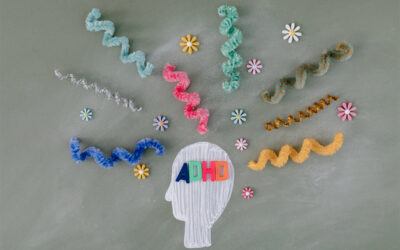Reading Disability and Dyslexia Evaluation in Nova Scotia
Overcome Reading Challenges with a Dyslexia Assessment
Reading struggles do not have to hold your child or teen back.
Our dyslexia experts specialize in providing comprehensive evaluations, personalized recommendations, and practical strategies to address both learning and emotional needs. So your child or teen can succeed emotionally and academically.

Does your child or teen struggle with reading?
Reading and written language play a critical role in your child and teen’s life.
At school, all subjects involve learning information from written materials, whether a textbook, assigned reading, written instructions, syllabuses, emails, and more. Socially, peers will send them texts, show them funny memes, or stay connected by sending messages back and forth on real-time apps like Discord. At work, they’ll need to read and follow written instructions, send emails, and more.
Being able to accurately and efficiently read will affect your child’s life now and in the future.
But, reading struggles can leave children and teens feeling behind their peers, frustrated, and anxious about school, certain social situations, activities, or jobs.
An untreated and undiagnosed reading disability (dyslexia) can lead to academic, social, and emotional problems such as:
Low self-esteem
Increased sadness or depression
Self-blame or negative self-talk, like “I’m stupid.” or “I can’t learn.”
Increased anxiety around schoolwork
Avoiding reading or activities involving reading, including hobbies
Underperforming academically
Not engaging in classes or certain social situations
Social withdrawal from friends, peers, parents, and teachers
Yet, your child or teen can succeed with an accurate diagnosis, the right support, and personalized interventions. Allowing them to build their confidence and achieve their personal best.
What is dyslexia?
Dyslexia is a learning disorder involving unexpected struggles in learning to read and process written language. For instance, children and teens with dyslexia may have trouble recognizing and decoding words, impacting their reading fluency and accuracy.
The challenges are unrelated to a person’s intelligence and not due to poor effort. Dyslexia is a neurological condition involving how the brain processes written language.
In fact, dyslexic children, teens, and adults often have strong reasoning skills and can be creative thinkers.
While dyslexia is common, impacting between 15-20% of people, the specific challenges can vary from person to person.

Some common signs of dyslexia include difficulties with:
Identifying and manipulating individual sounds in words (called phonemic awareness)
Reading slower than expected for their age, with many pauses or errors
Spelling common words
Written expression, such as difficulty organizing their thoughts on paper or writing clear sentences
Avoiding reading or reading aloud
Get the right support for your child or teen with a dyslexia evaluation.
A dyslexia assessment also provides an accurate diagnosis if appropriate for your child, insights into their functioning, and personalized recommendations designed for your child’s needs.
This clarity ensures your child has the right tools to build the skills they need to achieve their best at school and in the future. So they can confidently pursue their interests, goals, and dreams.
Unique learning needs
Specific reading challenges
Cognitive strengths
A dyslexia assessment also provides an accurate diagnosis if appropriate for your child, insights into their functioning, and personalized recommendations designed for your child’s needs.
This clarity ensures your child has the right tools to build the skills they need to achieve their best at school and in the future. So they can confidently pursue their interests, goals, and dreams.
Accurate diagnosis of dyslexia can help your child or teen:
Understand the underlying cause of their learning difficulties
Gain access to accommodations at school or work
Learn effective strategies to support their learning
Reduce feelings of self-blame, anxiety, or shame due to reading struggles
Confidently advocate for themselves and what they need throughout their life
Our dyslexia experts can help you get the answers and support you and your child need.
Our experts are licensed psychologists trained in assessment, learning, and learning disorders, including reading disabilities.
We create a safe, supportive environment so your child or teen feels comfortable, relaxed, understood, and motivated during the evaluation. So they can do their personal best.
Assessments are individualized to meet your child or teen’s needs. Our comprehensive approach helps you better understand your child’s functioning, including strengths. As a result, we can correctly identify what’s contributing to your child or teen’s struggles and tailor recommendations, accommodations, and strategies to your child’s unique situation.
Our goal is to provide you and your child with the right answers, support, and tools so you and your child feel empowered and confident. Because they can build the skills they need to achieve their full potential.
Get an accurate diagnosis and personalized recommendations so your child or teen can overcome reading challenges.
Our dyslexia assessment experts are here to help you and your child. Contact us to schedule an appointment or if you have additional questions.
Articles Related to Dyslexia and Learning Disorders
Learn more about dyslexia and learning disorders with resources on our blog.
What are the benefits of a learning, ADHD, or behaviour evaluation for my child?
As a parent, you do everything you can to support your child, including their learning. Yet, when a teacher or the school suggests your child get “evaluated,” it can lead to uncertainties and questions. Many parents are left wondering: How will this really help? Will...
Psychological, ADHD, and Learning Assessments: What happens after your child’s testing?
Psychoeducational evaluations help you, your child, and the school better understand their learning style, emotional needs, and behavioural functioning — so they can get the right support to thrive. There are many benefits of an evaluation for a child or teen. But how...
ADHD Assessment vs Screening Tools: What Your Child Needs
When there’s a problem, it’s natural to want to solve it as quickly as possible. So if your child’s school suggests a screen for attention deficit hyperactivity disorder (ADHD), you may first seek help from your child’s pediatrician or family doctor. An ADHD screening...
Frequently Asked Questions
Do I need a professional referral for dyslexia testing?
Your child or teen’s pediatrician, school, or mental health provider may refer your child. However, a professional referral isn’t necessary unless required by your insurance provider.
How much does a dyslexia evaluation cost?
Dyslexia assessments vary by purpose and service providers. However, typically, a dyslexia evaluation for a school-aged child is $3,375.
Each evaluation typically involves 4 to 6 hours of direct assessment time with the client and then additional time for scoring, interpretation, and report writing by the psychologist. The whole process takes approximately 15 hours. Please call for more information about fees for various assessment services.
How do I explain the dyslexia assessment to my child?
Many children and teens find the process interesting. That said, we want your child to be motivated and relaxed on the assessment day. To help prepare your child, you can:
- Listen to their concerns
- Avoid using the word “test,” instead consider using “activities”
- Let them know that the purpose is to help them better understand themselves or what they’re experiencing
- Normalize the experience by reassuring them that other children participate in evaluations, too
The psychologist will also explain the assessment, including addressing any concerns.



